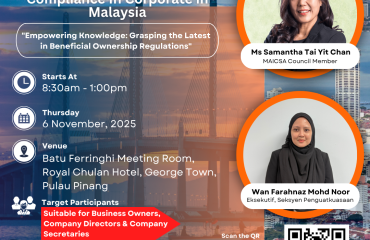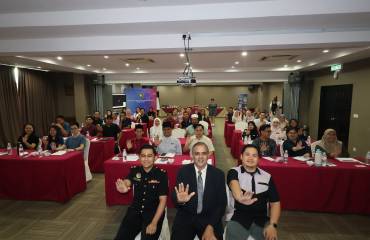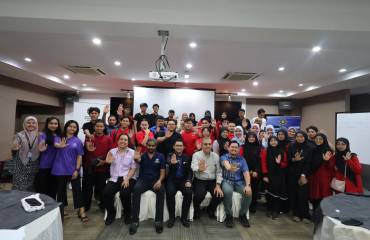
Issued in conjunction with the Launch of the National Campaign ‘Selamatkan Tasik Chini – Warisan Negara & Rizab Biosfera UNESCO’
Tasik Chini is Critical and Dying
Tasik Chini, Malaysia’s only UNESCO Biosphere is close to an ecological collapse.
A Universiti Kebangsaan Malaysia report in 2010 states “the eco-system of Tasik Chini is in a critical and ‘dying’ situation.”
The adverse impact of development activities such as mining close to the lake, plantations over the lake catchment areas and a weir built in 1995 at Chini River have disrupted the lives of the Orang Asli community in Tasik Chini and eroded their sense of security.
Transparency International-Malaysia (TI-M) together with the people of Tasik Chini and civil society partners launched the National Campaign to Save Tasik Chini on Sunday August 12, 2012.
Tasik Chini is the second largest freshwater lake in Malaysia and rich in bio-diversity and is a national heritage which should be protected and preserved.
There are over 500 people from the Orang Asli community, a majority from the Jakun tribe from six villages who live around the lake and they depend on the ecosystem for their livelihood and well-being.
Impact of Economic Activities on Ecological and Livelihood aspects
Rapid economic development has severely affected the lake catchment for over 20 years. Plantation agriculture, logging and mining activities have resulted in significant land use change within the catchment area of the lake.
Conversion of primary forest to secondary forest began long before the 1990s, with 60% of the catchment area having been logged. Further, the conversion of secondary forest to mono crop plantations, mainly oil palm and rubber has rapidly led to the deterioration of the lake ecosystem.
An abandoned mine was also reactivated with iron-mining activities in early 2005. With the increased demand for iron ore, more mines have recently been opened close to the lake, further adding to the deterioration of the water quality.
There are sufficient scientific and technical reports undertaken by the academic community attesting to the facts of the matter. In addition the views and experiences of the local community further testify to these realities.
Governance
A fragmented governance landscape in relation to environmental protection, natural resources and rights of indigenous communities pose major challenges to the restoration of the lake.
Environmental governance in Malaysia is highly dispersed and fragmented. Responsibilities are shared among several institutions and many actors at the Federal and State levels, raising concerns of accountability and transparency for environmental governance.
Urgent Call for Collective Action
Tasik Chini is close to an ecological collapse and the livelihood of the local Orang Asli community is at stake. The deteriorating lake ecosystem is threatening income generating activities in Tasik Chini, with fishing being the worst affected.
The number of tourists to Chini has decreased significantly as there is nothing to see or enjoy except bare hills, waste from the mining, three to four flowering lotus.
Restoration of a degraded lake system to its original ungraded condition requires multiple mitigation measures.
The following immediate measures need to be taken:
- Halt all mining and logging activities close to the lake.
- Remove the weir at estuary of Sungai Chini as stagnation of water because of the weir has caused fish disease; mortality of fish, trees surrounding the lake, lotus plants and infestation of pest plants such as cat’s tail. The building of the dam across Sungai Chini has blocked the lake off from Sungai Pahang. The lake has become a blocked sink.
- Acquire lands within the lake water catchment area is necessary.
- Establish a National Commission on Tasik Chini to implement the Recommendations submitted in the Memorandum to the Prime Minister on April 10 2012 by the people of Tasik Chini, TI-M and civil society groups.
- Enhance Governance and Management of the lake together with local community needs.
For more information about Tasik Chini and the campaign, please visit
http://www.timalaysia-forestwatch.org.my/tchini/
Issued by
Josie M Fernandez, Secretary General
Transparency International Malaysia, Tasik Chini Community and Endorsers







